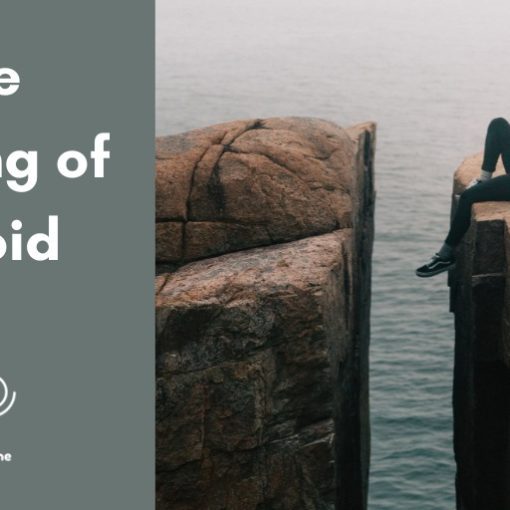Inviting your ‘Yes’ to be ‘YES’ encourages your ‘No’ to be ‘NO’.
Some boundaries are easy to defend with the word ‘No’ whilst other boundaries you feel like they get walked over all the time.
The other day I was offered a piece of very yummy looking chocolate cake. I very quickly and easily said ‘No’. The person begged me, and even pleaded with me to take it. They didn’t want to see it go to waste (or maybe their waist!), but I was easily able to say ‘No’, yet again.
The reason why I was able to say ‘No’ was because I have an allergy to egg and having that tempting delicious piece of poison was just out of bounds. I was saying ‘Yes’ to health and ‘No’ to being sick or even death. I have had to say ‘No’ probably thousands of times to various delicacies offered to me, but I just know the consequences.
Saying ‘No’ to something, where there is a very clear and dangerous outcome, is easy compared to saying ‘No’ in a relationship which you are emotionally connected into. Saying ‘No’ may just mean violence, abuse, subtle and not so subtle manipulations, isolation, punishment.
Saying ‘Yes’ to them when you really want to say ‘No’ can leave you feeling like you’re a doormat with them walking over you, stopping to rub there dirty shoes into your passiveness. Then anger creeps in, resentment builds, self loathing but still you remain the doormat.
I think of Jesus and how he said ‘No’ to so many different things because he had decided to say ‘Yes’ to something greater. Jesus was no doormat for others walk all over. He knew where the boundaries, the lines of Love and Respect, were drawn.
Jesus said ‘No’ to ministering to the poor and needy at times because there was a greater ‘Yes’ alluring him to spending time alone with the Father. Jesus said ‘No’ to avoiding certain geographical areas (Samaria) and outcasts (lepers, poor, tax collectors) to the alluring appeal of all mankind. Learning to say ‘No’ is good. You don’t have to be a servant or slave to someone else’s demands.
I like what Bill Gaultiere of Soul Shepherding has to say.
Tired care-givers often have trouble saying no and avoid speaking the truth in love. They are more readily drawn into trying to rescue other people and without realizing it may end up enabling selfish or irresponsible behavior in the people they’re trying to help.
They may get so enmeshed with the people they care for, trying to continually to please them and walking on eggshells for fear of upsetting them, that they “lose themselves.”
They lose track of what they need and what’s important to them or what God has called them to do. At some point they may realize that they’re not being their true, God created and God redeemed self. Bill Gaultiere
Some questions
Are you a rescuer? Do you avoid conflict? Are you an enabler of the behaviours of others? Are you so enmeshed with someone else that you have lost your ‘self’?
Recently I wrote about the Lines if Love and Respect. Those pencil thin lines that exist between the ‘I’, ‘We’ and ‘Work’. Boundary lines that call for us to choose to say ‘Yes’ and ‘No’
The will power to saying ‘No’ comes from discovering and nurturing what your deep ‘Yes’ is.
As a follower of Christ I find within him a strong model of saying ‘No’ at times so as to nurture his deep ‘Yes’
Jesus’ deep ‘yes’ was found within the eternal love relationship he had with the Father and the Holy Spirit. He knew what perfect love, relationship and presence was like. This deep alluring ‘Yes’ was the one thing that kept him going. Therefore it was the unwillingness to bend or flex away from this path and conviction that got him into so much confrontation.
What is your ‘Yes’?
Like a deep satisfying long desired breath of pleasured relief – ‘Yes’. What allures, excites and compels your inner self to a love beyond understanding.
I want that. That is my ‘Yes’ and so anything or anyone that gets in my way to that ‘Yes’ I will be saying ‘No’. The stronger conviction I have of my ‘yes’ the stronger will be the conviction of my ‘No’.
Inviting your ‘Yes’ to be ‘YES’ encourages your ‘No’ to be ‘NO’.
Barry Pearman






3 thoughts on “Saying ‘Yes’ empowers your saying ‘No’”
Thanks Barry. Awesome post and very timely! Sharing this with our youth group!
thanks Elizabeth for the encouragement